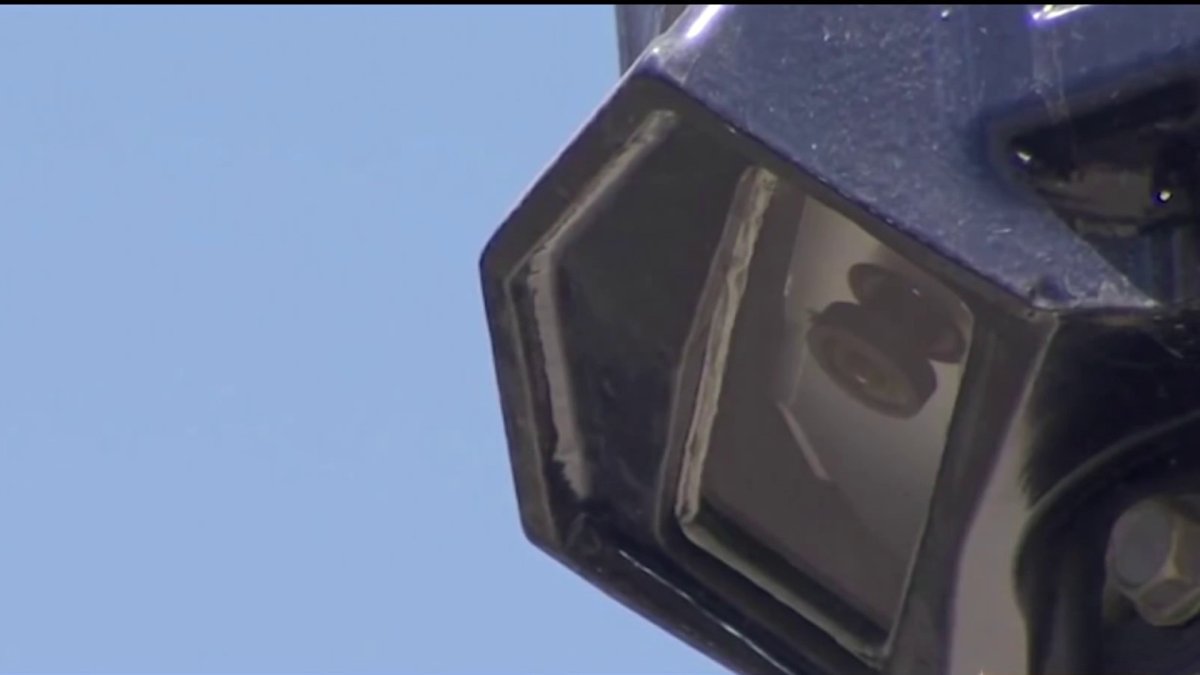
City Council has moved forward with adding oversite to the use of surveillance technology in San Diego’s streetlights. NBC 7’s Allison Ash has the story.
One week after the San Diego County grand jury issued a report calling the city of San Diego’s “smart streetlights” a “wasted investment,” city council moved forward with an ordinance that will add oversight to the use of surveillance technology.
The jury recommended San Diego “strongly consider taking actions to authorize and fund reinstatement of the use of smart streetlights by the San Diego Police Department.”
The city installed more than 3,000 smart streetlights in 2016, but it wasn’t until 2018 that SDPD realized the streetlights were equipped with surveillance cameras. The department began using surveillance video to help solve crimes, but people soon became concerned that the cameras were recording their every move, so in 2020 the cameras became off-limits to police.
That’s when community members began meeting with city leaders to come up with an ordinance that would provide oversight for how all surveillance video is used.
Get San Diego local news, weather forecasts, sports and lifestyle stories to your inbox. Sign up for NBC San Diego newsletters.
That ordinance was set for a vote in June, but after nearly 100 public comments on the ordinance, San Diego Police Chief David Nisleit told councilmembers that the plan would prevent his officers from working with federal task forces that share intelligence. The rules of the new ordinance state that police must tell overseers who they share information with and why, something that’s not allowed in the agreements with federal agencies that try to keep investigations close to the vest.
Councilmembers added an amendment to exclude police officers on task forces from revealing what they’re using surveillance technology for. There was also an amendment that put a cap on how much money people whose privacy rights were violated could sue for.
People who helped write the ordinance were outraged.
Local
“The original ordinance brings transparency, accountability and oversight to these technologies and these contracts with technology companies, and we need to know what they’re doing,” said Ramla Sahid of the Partnership for the Advancement of New Americans. “We need to know how to protect San Diegans’ privacy rights and this exclusion actually threatens our democracy. It threatens our civil liberties. It threatens all of our rights.”
Many of those against the amended ordinance were Muslim. Some claimed their families had been targeted by federal agencies after 9-11. “We don’t need to enshrine the kinds of secrecy and the kinds of warrant-less surveillance that’s been happening for decades,” said Lilly Irani, a college professor who is also with The Trust Coalition.
Some people also brought up the Supreme Court’s decision to overturn Roe v. Wade, claiming that people who come to San Diego to seek abortions could be recorded on surveillance videos and that video could be used against them in their home states. The council asked staff to look into protections for them, which will be discussed at a later meeting.
The amended ordinance passed unanimously. It returns to city council next month for a final vote.
The San Diego County District Attorney had originally been against the ordinance, claiming that it took away a valuable crime-fighting tool. The DA changed its stance Monday with this statement:
“The ability for law enforcement to access streetlight cameras when investigating violent crime has proven of great value in solving murder cases, thus allowing successful prosecution and the ability to bring justice to grieving families, while keeping the community safe. Being able to access the cameras swiftly is also essential so that evidence such as murder weapons, bloody clothing, gunshot residue and DNA, can be retrieved before it is contaminated or disposed of. The current version of the ordinance allows for these tools to be properly and ethically utilized for the benefit of community safety and therefore the District Attorney’s Office is not opposed to the current version specific to the streetlight cameras. We are not at this time taking a position on any other aspects of the ordinance.”